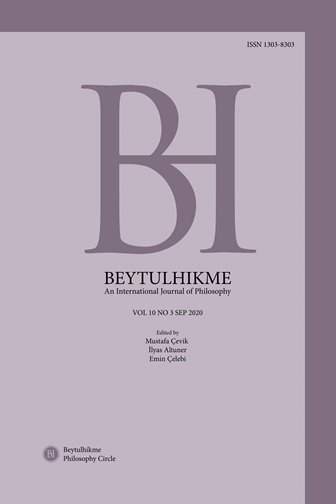Author :
Abstract
Bu makalede, Locke ve Hume’un düşüncelerinden hareketle kişisel özdeşlik kavramı ele alınacaktır. Bu bağlamda öncelikle sorunun tarihsel olarak bir kaydı verilecek, daha sonra Locke’un ilk defa bu kavrama yüklediği anlam değerlendirilecektir. Locke’un bizi biz yapan şeyi belirleyen ölçüt olarak ne ruhu ne de bedeni görmemesi, felsefe tarihi içerisinde bu konuya dair bir kırılmaya neden olmuştur. Bu anlamda Locke, bellek kavramını öne çıkarmış ve bu kavramı bilinç kavramıyla ilişkili ele almıştır. Hume ise benzer kavramları kullanmasına rağmen farklı sonuçlara varmıştır. Onun açısından ise kişisel kimlik bir yanılsamadan başka bir şey değildir. Bu makalede söz konusu düşünceleri merkeze alarak hem bir açımlama yapılmaya çalışılacak hem de sorunun felsefenin mevcuttaki durumu açısından önemine de değinilecektir.
Keywords
Abstract
In this article, considering Locke and Hume's thoughts, the concept of personal identity will be discussed. In this context, firstly, a historical record of the problem will be given, then the meaning that Locke has attributed to this concept for the first time will be evaluated. Locke's failure to see neither the soul nor the body as the criterion that determines what makes us has caused a break in this subject in history of philosophy. In this sense, Locke has highlighted the concept of memory and handled it in relation to the concept of consciousness. Hume, though using similar concepts, has reached different conclusions. For him, personal identity is nothing more than an illusion. In this article, we will try to make an explanation by focusing on the aforementioned thoughts and also mention the importance of the problem in terms of the current state of philosophy.
